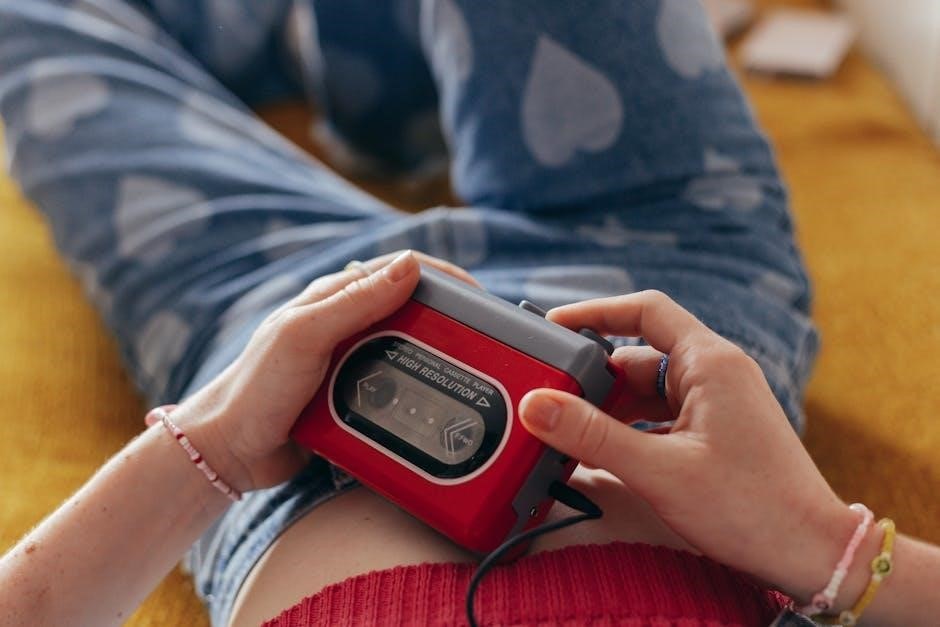A dental school personal statement is a foundational document showcasing your motivation, experiences, and suitability for a career in dentistry. It highlights your unique journey, skills, and commitment to the profession, serving as a crucial element in your application. Examples and guides provide valuable insights, helping you craft a compelling narrative that stands out to admissions committees.
What is a Dental School Personal Statement?
A dental school personal statement is a written essay submitted as part of the application process, showcasing an applicant’s motivation, experiences, and suitability for a career in dentistry. It provides a narrative of the applicant’s journey, highlighting relevant skills, volunteer work, and clinical experiences that demonstrate their commitment to the field. Unlike other graduate essays, this statement focuses on how the applicant’s unique background aligns with the values and goals of the dental program they are applying to. It serves as an opportunity to tell a story that reflects passion, dedication, and readiness to excel in dental school.
The Importance of a Strong Personal Statement
A strong personal statement is crucial for standing out in the competitive dental school admissions process. It provides insight into your unique background, motivations, and experiences, demonstrating how you align with the program’s values. A well-crafted statement showcases your passion for dentistry, highlighting relevant skills and experiences that prepare you for the challenges of dental school. It also illustrates your understanding of the profession and commitment to patient care. A compelling narrative can significantly influence the admissions committee’s decision, making it essential to present a clear, concise, and authentic portrayal of your journey and aspirations in dentistry.
Key Differences from Other Graduate School Essays
A dental school personal statement differs from other graduate school essays by focusing specifically on your passion for dentistry and hands-on experiences. It emphasizes clinical exposure, patient interactions, and a clear understanding of the profession. Unlike general graduate essays, it requires detailed examples of dental-related activities, such as shadowing, volunteering, or research. Additionally, it highlights your motivation for pursuing dentistry and how your unique background prepares you for the challenges of dental school. The statement must also demonstrate a balance between personal narrative and professional aspirations, making it distinct from essays for other fields.

Understanding the Structure of a Dental School Personal Statement
A strong dental school personal statement follows a clear framework: an engaging introduction, a detailed body highlighting experiences, and a concise conclusion summarizing your commitment to dentistry.
The introduction is your first opportunity to captivate the admissions committee. It should present a compelling narrative that highlights your unique motivation for pursuing dentistry. A strong opening might include a personal anecdote, a transformative experience, or a clear statement of purpose. For example, describing a moment that ignited your passion for dentistry can create an emotional connection with the reader. Avoid clichés and ensure your introduction is concise, setting the tone for the rest of your statement. Examples from successful applicants often emphasize clarity and authenticity, making their stories memorable and impactful.
Body: Sharing Relevant Experiences and Motivations
The body of your personal statement should delve into your experiences and motivations, providing concrete examples that demonstrate your suitability for dental school. Highlight specific moments, such as volunteer work, clinical observations, or research, that have deepened your understanding of dentistry. Explain how these experiences have shaped your passion for the field and equipped you with essential skills. Avoid generic statements by focusing on personal growth and lessons learned. For instance, describe how assisting at a free clinic reinforced your commitment to improving oral health care. Use these anecdotes to showcase your dedication, empathy, and readiness for the challenges of dental education.
Your conclusion should succinctly encapsulate your commitment to dentistry and reaffirm your readiness for dental school. Reflect on the experiences and motivations shared in the body, tying them to your future aspirations. Emphasize your eagerness to contribute to the field, whether through patient care, research, or community service. Avoid introducing new information; instead, reinforce your passion and readiness for the challenges ahead. A strong conclusion leaves a lasting impression, demonstrating your clear vision and dedication to becoming a compassionate and skilled dentist. Use this section to inspire confidence in your ability to excel in and contribute meaningfully to the dental profession.
Brainstorming Ideas for Your Personal Statement
Identify experiences, skills, and moments that define your journey toward dentistry. Reflect on personal motivations, clinical experiences, and volunteer work that highlight your dedication and unique perspective.
Reflecting on Your Motivation to Pursue Dentistry
Understanding your motivation is critical for a compelling personal statement. Consider moments that sparked your interest, such as a transformative experience at a dental clinic or a desire to improve community health. Highlight personal values like empathy and problem-solving that align with dentistry. Reflect on how your experiences have solidified your commitment to the field. Be honest and specific, showcasing how your unique background and aspirations make you a strong candidate. Examples from successful applicants often emphasize a clear, heartfelt narrative that connects passion to purpose.
Identifying Unique Experiences and Skills
Highlighting unique experiences and skills sets your personal statement apart. Reflect on your clinical rotations, research projects, or leadership roles that demonstrate your capabilities; Emphasize specific moments where you excelled, such as successfully managing a dental outreach program or conducting research in oral health. Showcase skills like communication, empathy, and problem-solving, which are essential for dentistry. Personal anecdotes and quantifiable achievements can illustrate your strengths. Examples from successful applicants often focus on how these experiences have prepared them for the challenges of dental school and a future career in the field. Be specific and authentic.
Highlighting Volunteer Work and Clinical Experience
Volunteer work and clinical experience are pivotal in demonstrating your commitment to dentistry. Discuss your roles in free clinics, hospitals, or community health projects, emphasizing how these experiences deepened your understanding of patient care. Describe specific interactions or cases that shaped your passion for the field. Quantify your involvement, such as hours spent or patients treated, to add impact. Highlighting these experiences showcases your hands-on skills and dedication, making your application more compelling. Successful examples often illustrate how these experiences have prepared you for the challenges of dental school and a career in dentistry. Be detailed and sincere.
Writing Tips for a Compelling Personal Statement
Clarity and conciseness are essential. Avoid fluff and focus on meaningful content. Use anecdotes to illustrate your passion for dentistry. Customize your statement for each school.
Clarity and Conciseness: Avoiding Fluff

Clarity and conciseness are crucial in a dental school personal statement. Avoid unnecessary jargon or overly complex sentences that may confuse readers. Instead, focus on delivering your message straightforwardly, ensuring each sentence adds value. Remove any fluff or redundant information that doesn’t contribute to your narrative. Admissions committees value precision and directness, as they often review numerous applications. By maintaining clarity, you ensure your experiences and motivations shine through, making your statement more impactful and memorable.
Showing, Not Telling: The Power of Anecdotes
Using anecdotes in your dental school personal statement helps bring your story to life by illustrating your qualities through specific experiences. Instead of simply stating traits like “compassionate” or “dedicated,” recount moments that demonstrate these characteristics. For example, describe a time you connected with a patient or overcame a challenge. This approach makes your narrative more engaging and relatable, allowing the admissions committee to glimpse your personality and passion for dentistry. Anecdotes also highlight your unique perspective and experiences, making your statement memorable and impactful. They are a powerful tool to showcase your commitment and suitability for a dental career.
Customizing Your Statement for Each School
Customizing your personal statement for each dental school is crucial to demonstrate your genuine interest in their specific program. Research the school’s mission, values, and unique opportunities to tailor your narrative. Highlight how your experiences and goals align with their curriculum, faculty, or community involvement. For example, mention a particular program or mentor that excites you. This shows you’ve invested time in understanding their offerings and are serious about attending. Avoid generic statements that could apply to any school, as this may signal a lack of genuine interest. Tailoring your statement reinforces your commitment and makes your application more compelling.

Common Mistakes to Avoid
Avoid generic statements that lack personal depth, failing to address weaknesses or gaps in your journey, and relying on clichés that don’t showcase your unique perspective.
Overly Generic Statements
Avoid writing a personal statement that lacks specificity and personal insight. Generic statements fail to distinguish you from other applicants, often sounding like clichés. They don’t demonstrate your unique experiences or genuine interest in dentistry. For example, stating “I want to help people” without providing a personal story or specific motivation is unimpactful. Use specific anecdotes or experiences, such as volunteer work or clinical encounters, to illustrate your passion and understanding of the field. Relying on overused phrases or vague goals can make your statement forgettable. Instead, focus on what sets you apart and connects you to the profession, ensuring your narrative is authentic and compelling. Examples from successful applicants highlight the importance of personal depth and originality in standing out to admissions committees.
Not Addressing Weaknesses or Gaps
Ignoring weaknesses or gaps in your personal statement can raise concerns for admissions committees. If you have a low GPA, gaps in employment, or limited clinical experience, addressing these issues directly demonstrates maturity and self-awareness. For example, explaining how you overcame academic challenges or used a gap year to gain relevant experience shows resilience and commitment. Avoiding these topics may lead to unanswered questions, harming your credibility. Instead, frame weaknesses as opportunities for growth, highlighting what you’ve learned and how it prepares you for dental school. This approach shows you’re proactive and capable of overcoming obstacles, strengthening your application.
Using Clichés and Overused Phrases
Relying on clichés like “I’ve always wanted to be a dentist” or “I want to help people” can make your personal statement feel generic and uninspired. Admissions committees read numerous applications, so overused phrases fail to capture your unique voice. Instead, share specific anecdotes or experiences that illustrate your passion for dentistry. For example, describe a moment that solidified your desire to pursue this career or a skill you’ve developed through hands-on experience. Authenticity and originality are key to standing out, so avoid phrases that lack personal depth and meaning. Your story should reflect your individual journey, not common stereotypes or generic expressions.
Examples of Strong Dental School Personal Statements
Strong examples showcase unique experiences, motivations, and skills, demonstrating a genuine passion for dentistry. They highlight specific anecdotes, volunteer work, and clinical experiences, illustrating a clear commitment to the field. These statements avoid clichés, offering original insights and a personal touch that resonates with admissions committees, making the applicant stand out among others. By focusing on individual journeys and achievements, they effectively convey readiness for dental school and a dedication to the profession. Each example provides a compelling narrative that aligns with the applicant’s goals and aspirations in dentistry. Originality and authenticity are key elements in these standout personal statements.
Example 1: Highlighting a Calling to Dentistry
In this example, the applicant shares a transformative experience at a dental clinic, where they witnessed the impact of quality care on patients’ lives. They recount a moment when a patient expressed gratitude for restoring their smile, igniting a deep passion for dentistry. The narrative highlights empathy, dedication, and a clear understanding of the profession’s purpose. By focusing on this pivotal experience, the applicant effectively conveys their commitment to pursuing dentistry as a calling rather than just a career. This approach creates a compelling and memorable personal statement, demonstrating genuine motivation and alignment with the field’s values. The use of a specific anecdote strengthens the emotional connection, making the applicant’s journey relatable and inspiring. This example exemplifies how personal experiences can be leveraged to craft a standout personal statement.
Example 2: Emphasizing Research and Academic Achievements
This example showcases an applicant’s academic prowess and research contributions. They highlight their involvement in a study on oral health disparities, where they collected data and co-authored a publication. The applicant also mentions earning a 4.0 GPA in prerequisite courses, demonstrating intellectual rigor. By linking their research to a desire to improve patient outcomes, they illustrate a deep understanding of dentistry’s scientific foundation. This narrative emphasizes analytical skills, academic excellence, and a commitment to evidence-based practice, positioning the applicant as a well-rounded candidate prepared for the demands of dental school. Their achievements underscore a strong foundation for a successful dental career.
Example 3: Focus on Community Service and Leadership
This example highlights an applicant’s dedication to community service and leadership in dentistry. They describe volunteering at a free clinic, where they assisted dentists and educated patients on oral hygiene. Additionally, they led a team organizing dental health workshops in underserved neighborhoods. These experiences not only deepened their understanding of healthcare disparities but also strengthened their communication skills and empathy. By emphasizing their role in improving community health, the applicant demonstrates a commitment to the societal impact of dentistry. Their leadership and service-oriented mindset position them as a compassionate and proactive future dentist, ready to make a meaningful difference. Their narrative resonates with the values of dental schools seeking well-rounded professionals.
Weaknesses in Personal Statements
A lack of depth in experiences, poor grammar, and not demonstrating knowledge of the profession are common weaknesses that can hinder a personal statement’s effectiveness.
Lack of Depth in Experiences
Lack of Depth in Experiences
A common weakness in personal statements is the lack of depth in experiences. Many applicants fail to provide specific details or meaningful reflections on their interactions with dentistry. Avoid being overly generic by including anecdotes or volunteer work that showcase your unique perspective and commitment. For example, describing a transformative experience at a dental clinic or a challenging patient case can demonstrate your passion and understanding of the profession. Admissions committees can easily spot when experiences are superficial or lack personal insight. Use examples from your journey to illustrate your growth and readiness for dental school.
Poor Grammar and Punctuation
Poor grammar and punctuation are critical mistakes that can undermine the professionalism of your personal statement. Admissions committees view these errors as a lack of attention to detail, which is unacceptable for a future dentist. Even minor typos or misplaced commas can distract from your message and create a negative impression. It’s essential to proofread your statement multiple times and seek feedback from mentors or editors. A polished, error-free statement reflects your commitment to excellence and demonstrates the precision required in dentistry. Don’t risk jeopardizing your application with avoidable mistakes—ensure your writing is flawless and professional.

Not Demonstrating Knowledge of the Profession
Failing to demonstrate a clear understanding of the dental profession can weaken your personal statement. Admissions committees expect applicants to show insight into the role of dentists, current trends in the field, and the challenges it presents. Without this, your statement may lack depth and purpose. Highlighting relevant experiences, such as clinical observations or volunteer work, can help illustrate your knowledge. Additionally, discussing how your skills and passions align with the demands of dentistry will convey your readiness for the profession. Avoid generic statements and focus on specific examples that showcase your understanding and commitment to the field.

How to Use Examples Effectively
Using examples effectively involves incorporating specific anecdotes and experiences to illustrate your skills and motivations. This approach helps create a vivid narrative, making your statement memorable and authentic. Avoid copying templates; instead, draw inspiration from successful examples to craft your unique story. Focus on experiences that highlight your passion for dentistry and your readiness for the challenges ahead. By doing so, you demonstrate both your understanding of the profession and your commitment to excelling in it.
Learning from Successful Applicants
Learning from successful applicants involves analyzing their personal statements to identify key elements that made their applications stand out. Review examples to understand how they articulated their motivation, highlighted relevant experiences, and demonstrated a genuine passion for dentistry. Pay attention to how they used specific anecdotes to illustrate their skills and commitment. This process can provide valuable insights into what admissions committees look for in a compelling statement. However, avoid plagiarism by using these examples as inspiration rather than templates. Instead, focus on crafting a unique narrative that reflects your personal journey and aspirations in the field of dentistry.
Avoiding Plagiarism and Maintaining Originality
Avoiding Plagiarism and Maintaining Originality
Avoiding plagiarism is crucial when crafting your personal statement. While using examples from successful applicants can provide guidance, it’s essential to ensure your work remains original. Plagiarism can result in rejection or disciplinary action, undermining your credibility. Instead, use examples to understand structure and tone, then infuse your own unique experiences and voice. Focus on personal anecdotes, specific motivations, and genuine reflections that showcase your individuality. Originality not only avoids ethical issues but also allows your authenticity to shine, making your statement memorable to admissions committees.
Using Examples as a Guide, Not a Template
Personal statement examples are invaluable for understanding structure and tone but should not be replicated. Each applicant’s journey is unique, and your statement should reflect your individual experiences and aspirations. While examples can inspire and guide, avoid copying phrases or narratives. Instead, use them to identify key themes and elements that resonate with your own story. Focus on weaving your personal anecdotes, motivations, and insights into a cohesive narrative. This approach ensures your statement remains authentic and original, showcasing your unique perspective and commitment to dentistry. Authenticity is what sets your application apart and captures the reader’s attention.

Additional Resources for Writing Your Personal Statement
Explore online databases offering dental school personal statement examples, such as PDF guides, to gain insights and inspiration for crafting your own unique narrative effectively.
Online Databases for Personal Statement Examples
Online databases offer a wealth of dental school personal statement examples, including PDF guides, to inspire and guide your writing. Platforms like Google Scholar, university websites, and educational forums provide access to these resources. For instance, examples from Manchester University’s BDS Dentistry program highlight real applicant experiences. These databases allow you to review successful statements, understanding what admissions committees value. Use them to gain insights into structure, tone, and content, ensuring your statement reflects your unique journey. Remember, these examples are meant to inspire, not replicate, so maintain originality in your writing.
Webinars and Workshops on Personal Statement Writing
Webinars and workshops are excellent resources for refining your dental school personal statement. Experts like Shirag Shemmassian, Ph.D., offer insights into crafting compelling narratives, emphasizing authenticity and clarity. These sessions often include interactive exercises, Q&A segments, and examples of successful statements. Platforms like Leland provide access to such events, focusing on topics like brainstorming ideas, avoiding clichés, and showcasing unique experiences. Attendees gain practical tips on structuring their essays and highlighting their qualifications. These resources are invaluable for applicants seeking guidance on creating a standout personal statement tailored to dental school admissions.
UCAS Guidelines for Dentistry Applicants
UCAS guidelines for dentistry applicants emphasize the importance of a well-structured and insightful personal statement. They highlight the need to demonstrate a genuine interest in dentistry, supported by relevant experiences and skills. Applicants are encouraged to reflect on their motivation, academic background, and extracurricular activities. UCAS also provides examples of strong and weak statements, offering valuable insights into what admissions committees look for. By aligning your statement with these guidelines, you can effectively showcase your suitability for a dental program; Reviewing UCAS resources ensures your application meets expectations and stands out in a competitive field.

Final Tips for Submitting Your Personal Statement
UCAS guidelines for dentistry applicants emphasize the importance of a well-structured and insightful personal statement. They highlight the need to demonstrate a genuine interest in dentistry, supported by relevant experiences and skills. Applicants are encouraged to reflect on their motivation, academic background, and extracurricular activities. UCAS also provides examples of strong and weak statements, offering valuable insights into what admissions committees look for. By aligning your statement with these guidelines, you can effectively showcase your suitability for a dental program. Reviewing UCAS resources ensures your application meets expectations and stands out in a competitive field.
Seeking Feedback from Mentors and Peers
Seeking feedback from mentors and peers is a critical step in refining your personal statement. Professors, advisors, or practicing dentists can provide valuable insights, helping you improve clarity and tone. Share your draft with trusted individuals who understand the dental profession and can offer constructive criticism. Their perspectives can highlight strengths and weaknesses you may overlook. Be open to their suggestions and use them to refine your narrative. Revisions based on feedback demonstrate maturity and a willingness to grow, enhancing the overall quality of your statement. This collaborative process ensures your personal statement is polished and impactful.
Proofreading and Editing
Proofreading and editing are essential steps in perfecting your personal statement. Even minor errors can detract from the professionalism of your application. Carefully review your essay for grammar, punctuation, and spelling mistakes. Ensure that your writing is clear and concise, avoiding overly complex sentences. Consider using tools like grammar checkers or seeking help from a professional editor. A polished statement reflects attention to detail and commitment to excellence, qualities admissions committees value in candidates. By investing time in this process, you ensure your personal statement is error-free and presents your best self to the review panel.
Meeting Application Deadlines
Adhering to application deadlines is crucial for a successful submission. Missing a deadline can result in your application being overlooked, regardless of its quality. Create a timeline to ensure your personal statement and other materials are completed well in advance. Double-check each school’s specific deadlines and requirements. Submitting early demonstrates organization and responsibility, traits valued by admissions committees. Allow ample time for feedback and revisions to avoid last-minute stress. By prioritizing deadlines, you maintain control over the application process and increase your chances of a positive outcome. Stay organized and proactive to meet all submission requirements efficiently.
